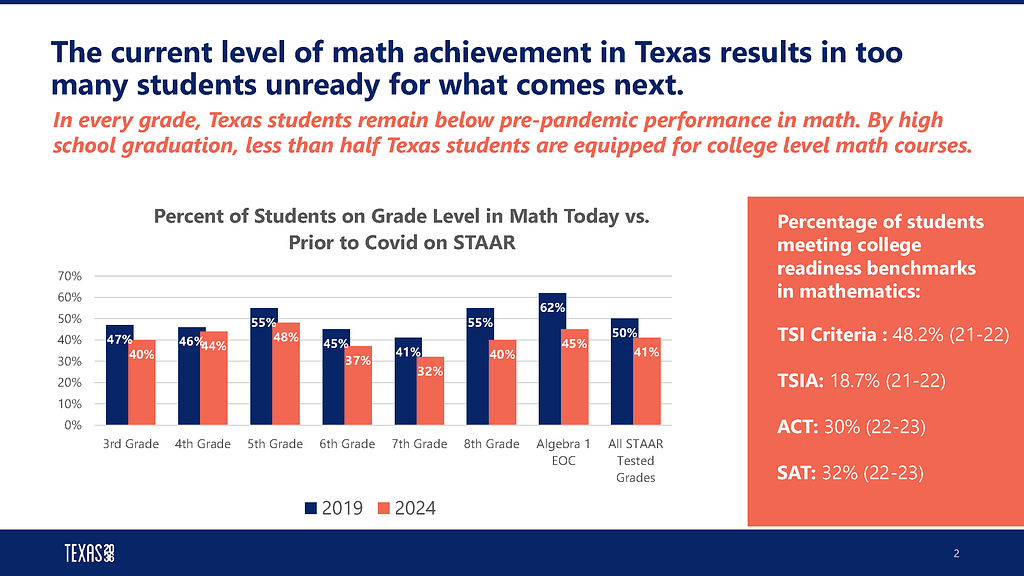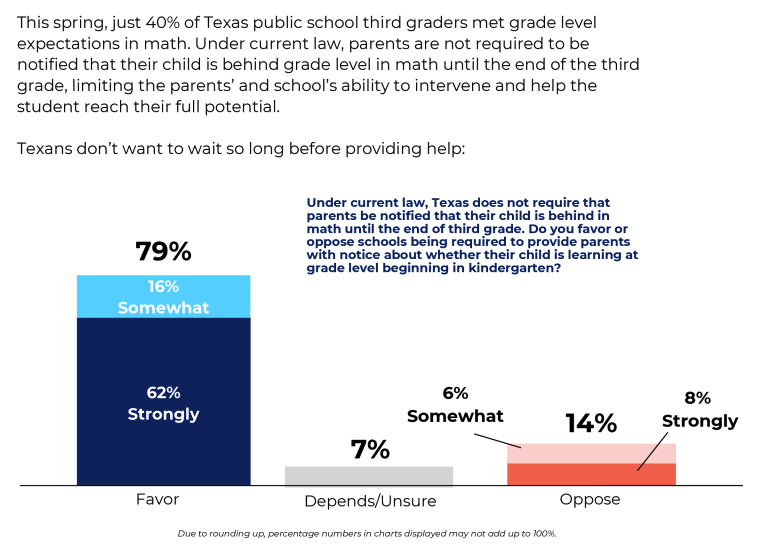As the future Texas economy relies on a skilled, qualified STEM workforce, a student’s inability to master math in the early grades substantially hinders their access to an increasingly critical and lucrative sector of Texas’ economy.
But right now 59% of Texas students are below grade-level in math.
A key factor is the quality of math instruction. Only 36% of elementary and middle school principals in Texas report that all or almost all of their math teachers demonstrate deep knowledge of math instruction, and only 41% have a deep knowledge of math.
Foundational math skills are necessary for students to meaningfully engage with higher-level STEM coursework. Employment in science, technology, engineering, and mathematics (STEM) occupations is expected to grow faster than in non-STEM occupations (7% vs. 2%), outpacing total job growth, and will likely be held by workers with higher levels of educational and degree attainment
With just half of Texas high school graduates meeting college readiness benchmarks in math, many Texas students can be shut out of high wage careers and academic pathways.
Legislative Opportunities
Support Texas students by ensuring schools utilize evidence-based progress monitoring to detect foundational gaps and ensure teachers are provided data literacy to adequately inform classroom instruction, and provide targeted, research-based support for students to get back on track.
Support Texas parents by providing them with reliable information on their student’s progress and resources through strong parent notification requirements.
Support Texas teachers by scaling or providing appropriate incentives for participation in Math Academies along with additional supports – such as instructional coaching – that are strategically aligned to high-quality instructional materials and focused on campuses with the greatest percentage of academically behind students.


